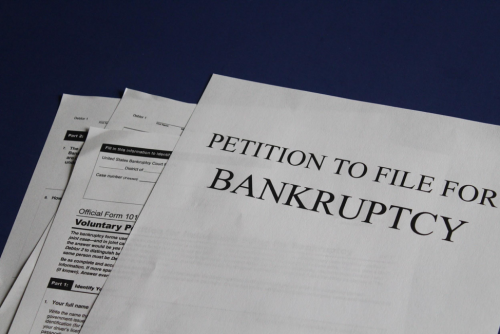Associates Home Loans Discusses How to Bounce Back After Bankruptcy
Posted by : Premraj | Posted on : Monday, December 9, 2019

Photo by Melinda Gimpel on Unsplash
Learning how to recover from bankruptcy can help you overcome the feelings of dread and anxiety that often surround the decision to file. You may have made the choice already, or you could be exploring all your options to get out of debt. Most people see filing for bankruptcy as a last resort, but it can really be seen as a new opportunity to regain financial security and start over with newfound wisdom.
Associates Home Loan helps people make better financial decisions and fund their futures with no-nonsense loans. If you’re contemplating getting a loan after bankruptcy, there are some things you should know first.
You Should Try to Rebuild Credit Solo First
Getting a loan might seem like the best next step to help pay off remaining debt, but you should instead consider raising your credit on your own. Getting a secured credit card will allow you to rebuild your credit while avoiding debt. A secured card costs around $200 to $300 to get, but they do come with high-interest rates and fees, so you should take some time to research different cards and find one that will give you the greatest value.
Bankruptcy is a chance to identify weak points in your money management skills and make improvements. Don’t rush to get another credit card or a loan; you’ll most likely wind up in debt all over again. Instead, work on keeping your money in one place, sticking to a budget and building a savings account while slowly rebuilding your credit score.
Come Up With a Financial Plan
In order to regain your financial footing after filing for bankruptcy, you have to know what got you there in the first place. What were your spending habits like? Did you rely on credit cards to live beyond your means, or was there a single event that caused your problems? If you lost your job or had to file due to medical debt, then you may not need to scrutinize your financial behaviors so closely.
The truth is that some people wind up in bad financial situations even though they did everything right. Others may find themselves having to pay for poor choices and bad investments. Either way, recovery must be oriented around a plan that is rooted in wisdom you’ve learned from the past.
The first thing you should do is focus on rebuilding credit through everyday spending, not major purchases and expenses. Getting credit cards that you can pay back easily and use for everyday expenses like gas or retail store cards will prove that you’re good at handling credit and know how to use it responsibly.
The Importance of a Budget
Everyone needs a monthly budget, no matter the scale of their income. Whether you’re living off disability payments or earning a six-figure salary, it’s important to budget and live within your means. Part of developing a good budget is cutting out unnecessary expenses and reducing mandatory costs.
Can you move somewhere more affordable? Are you currently paying for monthly subscriptions you don’t even use? How can you lower your water and energy consumption? Use coupons and store apps for greater discounts.
Find ways to save any way you can, and avoid impulse buys. Whenever you have extra money, make a rule to spend no more than 10 percent and leave the rest in a savings account.
Focus on Your Needs
Needs should come before wants, even when there’s money to spare. People who file for bankruptcy have to think about the future, which means considering how their financial actions today will impact them tomorrow. Debt builds up quicker than you think, and it can take a week or two of reckless spending to wind up facing hundreds of dollars in interest and fees.
If you struggle to control your spending or keep track of money, consider speaking to a personal financial planner. These professionals can help you recover from bankruptcy by teaching you how to plan smartly, build up savings and curb any bad money habits.
Bankruptcy stays on your record for seven years, but that doesn’t mean you can’t continue to improve your credit score. Within a year, you could raise your credit to 640, and after three to five years, many people have a good credit score. What matters most is how you divide your income and invest your earnings; even everyday expenses like groceries should be carefully considered.
Use Cash As Much As Possible
After filing for bankruptcy, you shouldn’t use credit cards often. If you exceed 35 percent of your card’s limit, then your credit score will be affected, lowering your score even more. Rely on paying from your checking account instead, which will force you to stick to a budget. It will be hard at first, especially in the first few months following bankruptcy, but the habits you lay now will help you establish a much more secure financial future.
If you’re ready to get a loan after bankruptcy and want to learn more, contact Associates Home Loan today!
 SU
SU REDDIT
REDDIT







